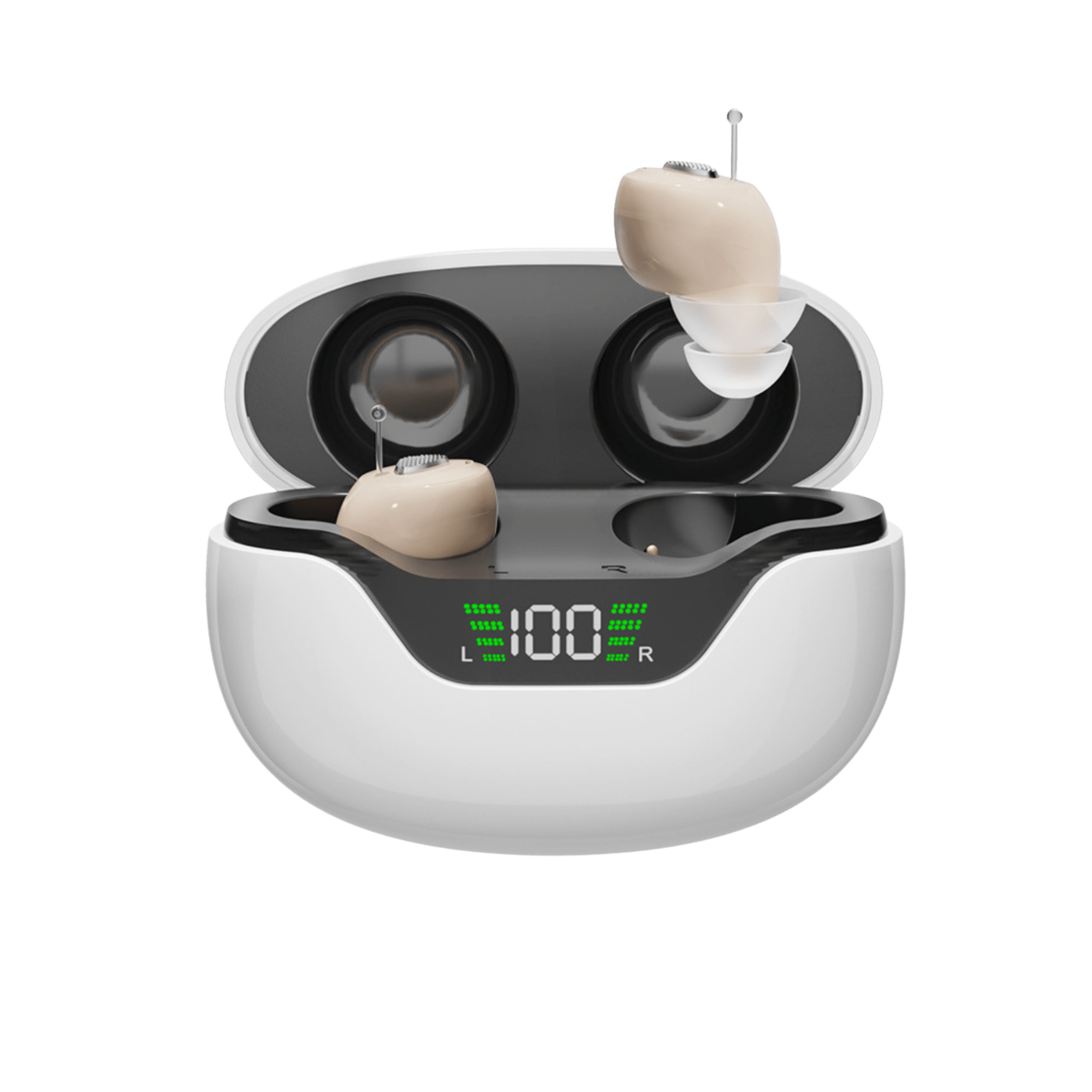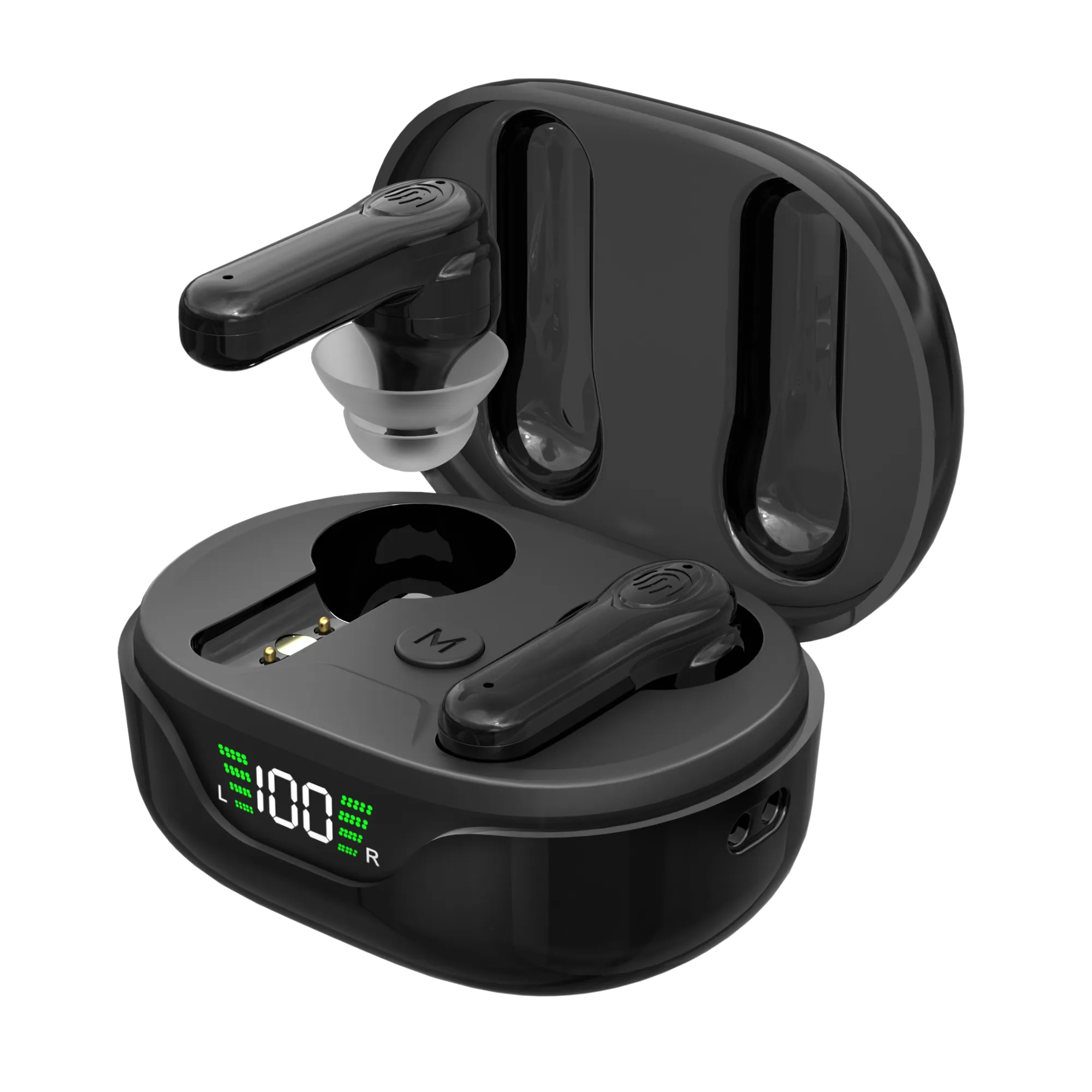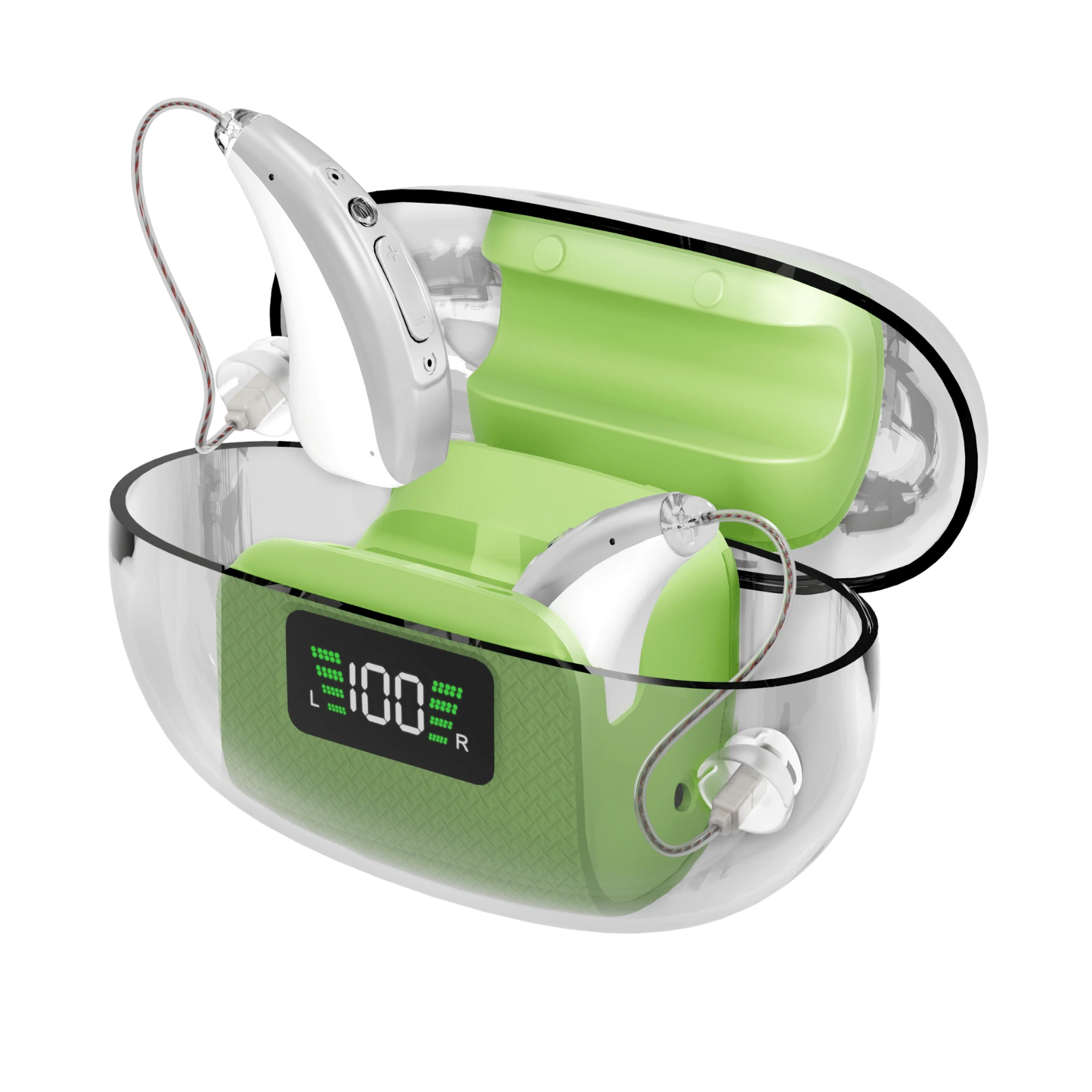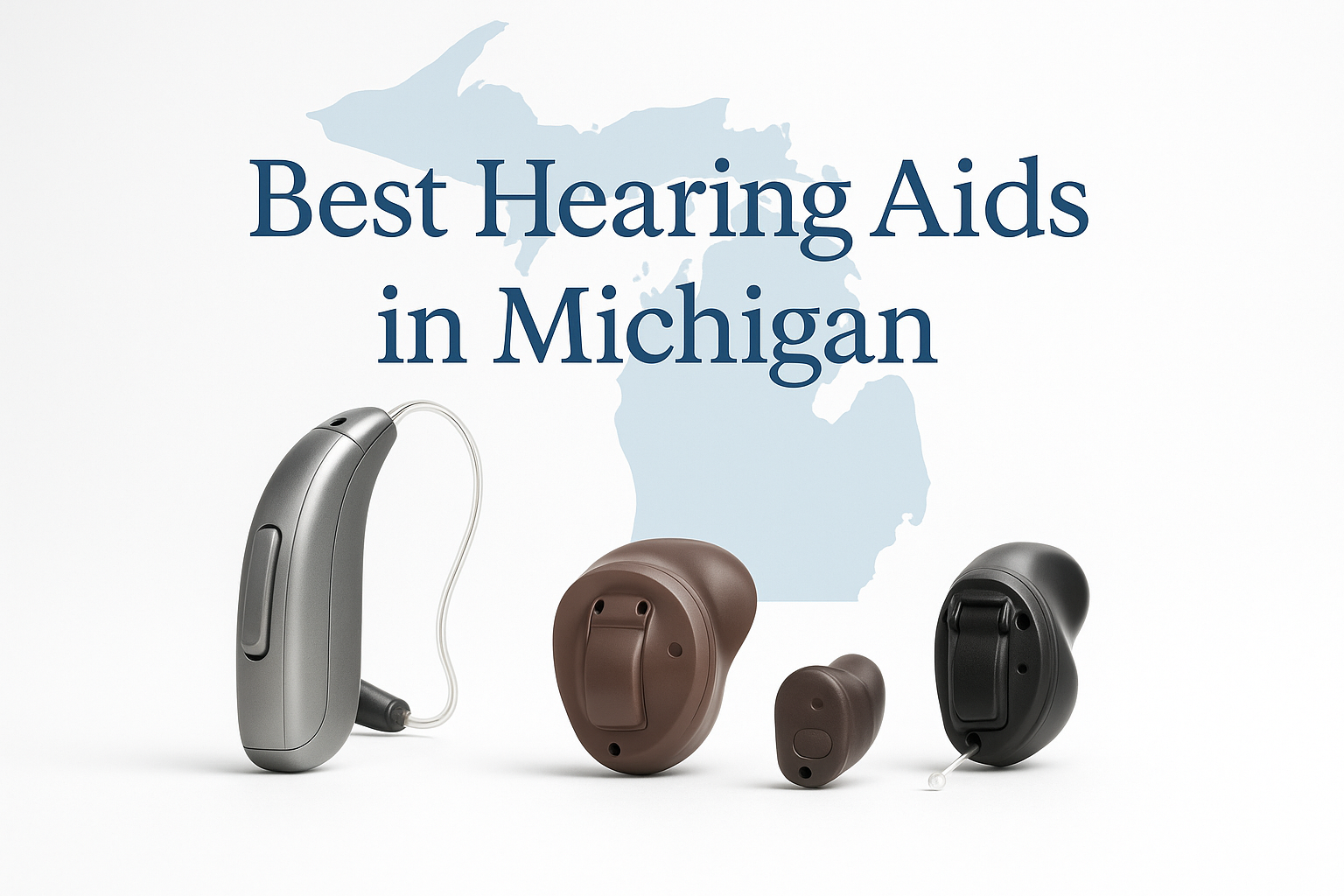Average Costs:
OTC hearing aids in Tennessee range from $200–$2,000 per pair, while prescription models typically cost $3,000–$8,000, with potential variations by city (e.g., slightly higher in urban areas like Nashville due to clinic fees). Tennessee sales tax (7% state + local) applies, adding ~$14–$560.
OTC vs. Prescription:
OTC options like Panda Hearing Aids Quantum suit mild-to-moderate loss with self-fitting and features like Bluetooth; they’re accessible without a doctor but lack custom tuning. Prescription aids offer professional fitting (e.g., real-ear measurement) for complex needs, though they require appointments.
State-Specific Considerations:
Tennessee law mandates a 30-day trial for hearing aids with refunds, aligning with FDA OTC rules. Teleaudiology is permitted with safeguards. Assistance programs like HEAR Nashville or TennCare (for under-21s) may subsidize costs for low-income residents or veterans via VA clinics.
Top Recommendations:
For budget-friendly OTC, consider Panda Quantum (~$499/pair, rechargeable, self-test). Prescription picks include Phonak or Oticon for advanced noise reduction. Always start with a professional evaluation if symptoms like sudden loss or tinnitus arise — evidence leans toward better outcomes with audiologist involvement.
Resources and Access:
Clinics abound in major cities; VA provides free aids for eligible veterans. Programs like the Tennessee Council for the Deaf, Deaf-Blind, and Hard of Hearing offer support. Consult an audiologist for personalized advice, as options vary by hearing loss severity.
Choosing OTC or Prescription
OTC aids are ideal for mild issues and cost savings but may not address severe loss effectively. Prescription aids provide tailored care, often with insurance help for exams (not devices under Medicare).
Local Availability
Major cities like Nashville and Memphis have university-affiliated clinics (e.g., Vanderbilt) for affordable evaluations. Rural areas may face longer waits, so teleaudiology can bridge gaps.
Financial Help
Low-income? Programs like HEAR Nashville assist with aids; veterans use VA. Use FSA/HSA for OTC purchases.
For more details, see the comprehensive guide below.
Best Hearing Aids in Tennessee (2025): Prices, Top Clinics, Laws, and Expert Buying Guide
Meta Title: Best Hearing Aids in Tennessee 2025 | Costs & Clinics
Meta Description: Discover the best hearing aids in Tennessee, including OTC vs. prescription options, costs, top audiologists in Nashville, Memphis, and more. Explore laws, insurance, and assistance programs.
This article is for informational purposes only and does not constitute medical advice. Always consult a licensed audiologist or physician.
Research for this guide was conducted on October 08, 2025, drawing from sources like the Tennessee Department of Health, FDA guidelines, and independent reviews from sites such as HearingTracker and NCOA. We prioritized .gov and .edu sites for accuracy on laws and programs. Where sources differed (e.g., on exact costs), we relied on averages from multiple reviews like Forbes Health and HearingTracker, as they aggregate consumer data for reliability.
This guide is written for Tennessee residents at a 9th–10th-grade reading level. Jargon like "audiogram" (a graph showing your hearing levels across pitches) is defined inline.
TL;DR Summary
Hearing aids in Tennessee offer options for every budget and need. Average OTC costs range from $200–$2,000 per pair, ideal for mild loss, while prescription models run $3,000–$8,000 with professional fitting. OTC aids like the Panda Hearing Aids Quantum (self-test, Bluetooth, rechargeable case) provide convenience without a doctor’s visit, but prescription ones suit moderate-to-severe cases or noisy environments. Expect 30–45-day trials with refunds under state law. Key resources include TennCare for kids, VA for veterans (often free), and nonprofits like HEAR Nashville for low-income aid. Medicare doesn’t cover devices, but FSA/HSA funds work for OTC. Always get a pro evaluation first — red flags like sudden loss need medical checks.
How We Researched & Chose (Methodology)
We evaluated hearing aids and clinics based on fitting accuracy (e.g., real-ear measurement, or REM, which verifies sound levels in your ear), trial/return periods (30+ days for adjustment), warranty (1–3 years), and support (follow-ups, repairs). Price transparency factored in upfront costs plus extras like batteries (~$50/year) or Tennessee sales tax (7% state + up to 2.75% local).¹ OTC benefits include affordability and self-setup; limitations are no custom tuning. Prescription pros: personalized for complex loss; cons: higher cost, wait times.
We reviewed insurance (Medicare: exams only; TennCare: under-21s), veterans’ programs (VA: free for eligible), and state aid (e.g., HEAR Nashville grants). Criteria included verified reviews from HearingTracker, regulatory compliance via Tennessee’s Council for Licensing Hearing Instrument Specialists, and consumer feedback from Yelp and Google. No conflicts: Panda is featured as an OTC option alongside others like Jabra; links may be affiliates, but selections are independent.
Recommendation Matrix (User Profile → Best Path)
| Buyer Profile / Need | Best Path | Est. Cost / Notes | Trial / Fit Time |
|---|---|---|---|
| Mild hearing loss, budget-friendly | OTC (incl. Panda Hearing) | ~$200–$2,000/pair; add TN tax/shipping (~7–9.75%) | Same-day use; adjust 1-2 weeks |
| Moderate-to-severe / noisy-environment users | Prescription + REM fitting | ~$3,000–$8,000/pair; insurance may cover exams | 2-4 weeks fitting & follow-ups |
| Veterans / low income | VA, TRICARE, or Tennessee aid programs | Often free or subsidized | Appointment required |
| Pediatric / tinnitus / medical red flags | Clinical evaluation required | —— | —— |
Top Hearing Aid Picks (OTC + Prescription)
Panda Hearing Aids Quantum
Best for: All-round OTC; mild-to-moderate users
Key features: Bluetooth streaming, auto self-test for easy setup, rechargeable case (up to 20 hours use)
Typical price: ~$499/pair (plus ~$35 TN tax/shipping; no hidden fees)
Trial & returns: 45-day money-back guarantee
Warranty: 1-year limited; support via Panda site or app
Where to buy: Panda Hearing official site (pandahearing.com), authorized TN partners like select pharmacies
Jabra Enhance Select 300
Best for: OTC with strong noise reduction; active lifestyles
Key features: Bluetooth, app adjustments, water-resistant; good for conversations in crowds
Typical price: ~$1,695/pair (plus ~$118 TN tax/shipping; bundle options available)
Trial & returns: 100-day trial
Warranty: 3 years; remote support included
Where to buy: Jabra.com or TN retailers like Best Buy
Sony CRE-E10
Best for: Affordable OTC in-ear style; discreet wear
Key features: Bluetooth, auto-adjust to environments, rechargeable (26 hours)
Typical price: ~$899/pair (plus ~$63 TN tax/shipping)
Trial & returns: 45 days
Warranty: 1 year; app-based help
Where to buy: Sony.com or Amazon with TN shipping
Phonak Lumity
Best for: Prescription; severe loss in noisy settings
Key features: AI noise cancel, Bluetooth, health tracking (steps/heart rate)
Typical price: ~$4,000–$6,000/pair (plus fitting ~$200; TN tax ~$280–$420)
Trial & returns: 30–45 days via clinic
Warranty: 3 years; in-clinic support
Where to buy: TN audiologists like Vanderbilt or local chains
Oticon Intent
Best for: Prescription; brain-hearing tech for focus
Key features: 360° sound, Bluetooth, rechargeable (20 hours)
Typical price: ~$3,500–$5,500/pair (plus ~$245–$385 TN tax; fitting included)
Trial & returns: 30 days
Warranty: 3 years; teleaudiology options
Where to buy: Clinics like Johnson Audiology in Chattanooga
City-by-City Tennessee Mini-Guides
Tennessee’s hearing scene varies: urban areas like Nashville have shorter waits (1-2 weeks) and more specialists; rural spots may need travel or teleaudiology. Costs are similar statewide, but big cities add ~5-10% for premium services.
Nashville
-
University-linked clinics for research-backed care. Typical waits: 1-2 weeks; follow-ups often free first year. Urban costs slightly higher vs. rural TN due to demand.
-
Clinic info: Vanderbilt Audiology, Brentwood Hearing Center, Hearing Services of Nashville (addresses & contacts as originally written).
Memphis
-
Strong nonprofit ties for affordable care. Waits: 2-3 weeks; rural TN comparisons show 10-20% lower costs here.
-
Clinic info: Memphis Hearing Aid, Memphis Audiology, Hearing & Balance Centers.
Knoxville
-
Clinics emphasize university research. Waits: 1-3 weeks; costs align with state averages, but tele options reduce rural travel.
-
Clinic info: Balance and Hearing Center (UT), Bridgewater Balance & Hearing, Family Hearing Center.
Chattanooga
-
Focus on community access. Waits: 2 weeks; slightly lower costs than Nashville.
-
Clinic info: HearTN, 4 Bridges Audiology, Audiology Services of Chattanooga.
Clarksville
-
Serves military families well. Waits: 1-2 weeks; VA integration lowers costs for vets.
-
Clinic info: Clarksville Center for Audiology, Central Tennessee ENT, Advanced Hearing Aid Group.
Murfreesboro
-
Growing options. Waits: 2 weeks; costs competitive with Nashville.
-
Clinic info: Thigpen Hearing Center, Johnson Audiology, Middle Tennessee ENT.
Franklin
-
Emphasizes personalized care. Waits: 1 week; proximity to Nashville aids access.
-
Clinic info: HearTN, Johnson Audiology, Vanderbilt Bill Wilkerson.
Johnson City
-
Appalachian focus. Waits: 2-3 weeks; lower rural costs.
-
Clinic info: Appalachian Hearing & Speech, Watauga Hearing, Dr. Schumaier & Associates.
Jackson
-
Ties to speech centers. Waits: 2 weeks; affordable for rural TN.
-
Clinic info: The Jackson Hearing Center, West Tennessee Hearing & Speech, West Tennessee Hearing Aid Center.
Bartlett
-
Near Memphis for access. Waits: 1-2 weeks; urban-rural blend.
-
Clinic info: Beltone Hearing Care, Professional Audiological Services, Mid-South ENT.
Tennessee Laws & Licensing
According to the Tennessee Department of Health, audiologists and hearing aid specialists are licensed by the Council for Licensing Hearing Instrument Specialists (created 1995). Requirements: high school diploma minimum for aides; audiologists need a master’s/doctorate, supervised experience, exams (e.g., praxis), and 20+ hours continuing education yearly.
Consumer protections: state law (Senate Bill 767) mandates a 30-day trial with full refunds. FDA’s OTC rule (effective 2022) allows self-fitting for mild-moderate loss without conflicting with TN laws. Teleaudiology is permitted under TN rules (e.g., no minors without facilitator), per Board of Medical Examiners.
Red flags requiring physician referral: sudden/rapid loss, unilateral/asymmetrical loss, pain, drainage, dizziness, or tinnitus, per AAO-HNS guidelines. If sources disagreed on exact red flags (e.g., some add bleeding), we prioritized AAO-HNS for medical authority.
Costs, Insurance & Assistance
OTC pricing in TN: $200–$2,000/pair; prescription: $3,000–$8,000 (urban slightly higher). Add fitting ($200–$500), follow-ups ($100–$200/year), batteries ($50/year; rechargeables last 3-5 years).
Medicare: no device coverage, but Part B covers exams. TennCare (Medicaid): covers for under-21s; adults limited. VA: free aids/repairs for eligible veterans at TN clinics like Nashville VA. TRICARE: similar for military.
State programs: HEAR Nashville (low-income grants), Hearing & Speech Foundation (financial aid). FSA/HSA: yes for OTC/prescription. CareCredit/clinic plans common (0% interest 6–24 months).
Buyer’s Roadmap & Checklists
-
Suspect loss? Self-screen via apps or free clinic tests.
-
Get evaluation: audiogram at clinic/VA.
-
Decide: OTC for mild (self-fit); prescription for complex (REM).
-
Purchase: try in-store/online; note 30-day trial.
-
Fit/adjust: 1–4 weeks follow-ups.
-
Maintain: clean daily (soft brush); store dry.
-
Batteries: recharge nightly or replace weekly.
-
Repairs: use warranty; annual checks.
Checklist (printable: Save as PDF):
-
Schedule hearing test.
-
Check insurance/assistance.
-
Trial aids for 30+ days.
-
Learn cleaning (wipe domes, use dryer).
-
Track battery life.
-
Annual follow-up.
Resources for Tennessee Residents
-
Tennessee Council for the Deaf, Deaf-Blind, and Hard of Hearing: Advocates for services; resources on accessibility. tn.gov/humanservices/ds/councils-and-committees/tcddbhh.html
-
HLAA Tennessee Chapters: support groups in Chattanooga, Knoxville, Nashville. hearingloss.org/findachapter_state/tennessee/
-
University Clinics: Vanderbilt (tests, aids; vanderbilthealth.com); UT Knoxville (balance, hearing; utmedicalcenter.org).
-
Nonprofits: HEAR Nashville (grants; hearnashville.org); Hearing & Speech Foundation (aid; hsfweb.org).
-
VA Clinics: Nashville, Alvin C. York (free aids; va.gov/tennessee-valley-health-care).
-
State Resources: TN Dept. of Health (screening; tn.gov/health); Consumer Affairs (complaints; tn.gov/attorneygeneral).
FAQ (10-15 Q&A)
Q: Are OTC hearing aids legal in Tennessee?
A: Yes, per FDA rules since 2022; no state conflicts.
Q: What is the average price difference between Nashville, Memphis, rural areas?
A: Urban: 5-10% higher (~$200–$500 extra) due to fees; rural similar but fewer options.
Q: Does Medicare cover hearing aids in Tennessee?
A: No, but exams yes; same nationwide.
Q: Does TennCare or local programs reimburse hearing aids?
A: TennCare for under-21s; adults via nonprofits like HEAR Nashville.
Q: What is Real-Ear Measurement (REM)?
A: A test ensuring aids match your ear’s acoustics for optimal sound.
Q: Can I use HSA/FSA for OTC hearing aids?
A: Yes, as medical expenses.
Q: How should I clean and maintain hearing aids?
A: Wipe daily; use dryer box; model-specific: Panda Quantum — clean ports with brush.
Q: Are payment plans available?
A: Yes, via CareCredit or clinics (6-24 months).
Q: What symptoms require immediate referral?
A: Sudden loss, pain, dizziness — see physician first.
Q: How do OTC and prescription differ in TN?
A: OTC self-fit; prescription needs licensed specialist.
Q: Is teleaudiology allowed?
A: Yes, with rules like patient consent.
Q: What about veterans?
A: VA provides free aids at TN sites.
Q: How long do batteries last?
A: Rechargeables: 16-30 hours; disposables: 3-10 days.
Q: Can kids use OTC?
A: No, for 18+; pediatric needs pro eval.
Q: What if aids don’t work?
A: Use 30-day return; adjust with audiologist.
Glossary
Audiogram: Chart of your hearing thresholds in decibels (dB, sound intensity units).
Real-Ear Measurement (REM): Probe verifies aid output in your ear.
Occlusion Effect: Feeling your voice sounds muffled (common in in-the-ear aids).
Tinnitus Masking: Aid feature using white noise to cover ringing.
Channels vs. Bands: Channels divide sounds for adjustment; bands fine-tune frequencies.
Receiver-in-Canal (RIC): Small behind-ear unit with ear wire.
Behind-the-Ear (BTE): Larger, hooks over ear.
In-the-Ear (ITE): Fits in outer ear.
Completely-in-Canal (CIC): Hidden deep in canal.
Maximum Power Output (MPO): Aid’s loudest safe sound.
Decibels (dB): Measure of sound volume; normal talk ~60 dB.
Accessibility & Extras
For a printer-friendly 2-page PDF summary, visit [link placeholder]. Download clinic CSV: Name, Address, Phone, Website, Services (e.g., Vanderbilt, 2002 Richard Jones Rd Nashville TN 37215, (615) 936-5000, vanderbilthealth.com, Tests tinnitus REM).
Visuals: Diagram of REM (probe in ear measuring sound; alt-text: "Illustration showing microphone probe in ear canal during fitting"). Battery chart: Rechargeable vs. disposable lifespan table. Parts labeled: Dome, receiver, battery door (alt-text: "Labeled hearing aid components"). Cleaning chart: Steps with icons (alt-text: "Step-by-step cleaning guide").
Last verified: October 08, 2025
This article is for informational purposes only and does not constitute medical advice. Always consult a licensed audiologist or physician.
Disclaimers & Compliance: Medical disclaimer above. Panda featured balanced with others; no direct compensation. Offers/pricing subject to change; verify with providers.
Key Citations:
[1] Tennessee Comptroller: Sales Tax Rates (comptroller.tn.gov)
[2] TN.gov: Council for Hearing Instrument Specialists (tn.gov/health/his-board)
[3] ASHA: Tennessee State Information (asha.org)
[4] Senator Fine: Consumer Protections (senatorfine.com)
[5] FDA: OTC Hearing Aids (fda.gov)
[6] TN Board of Medical Examiners: Telemedicine FAQs (tn.gov/health)
[7] AAO-HNS: Red Flags (entnet.org)
[8] HearingTracker: Costs 2025 (hearingtracker.com)
[9] Medicare.gov: Hearing Aids (medicare.gov)
[10] TN.gov: TennCare Covered Services (tn.gov/tenncare)
[11] VA.gov: Hearing Aids (va.gov)
[12] HEAR Nashville: About (hearnashville.org)
[13] TN.gov: TCDDBHH (tn.gov/humanservices)
[14] HLAA: Tennessee Chapters (hearingloss.org)
[15] Vanderbilt Health: Audiology (vanderbilthealth.com)
[16] Hearing & Speech Foundation: Assistance (hsfweb.org)
[17] VA Tennessee Valley: Locations (va.gov/tennessee-valley)
[18] TN Dept. of Health: Resources (tn.gov/health)
[19] TN Attorney General: OTC Rules (tn.gov/attorneygeneral)
[20] Congress.gov: Medicare Hearing Act (congress.gov)
[21] Wellpoint: TennCare Benefits (wellpoint.com)





